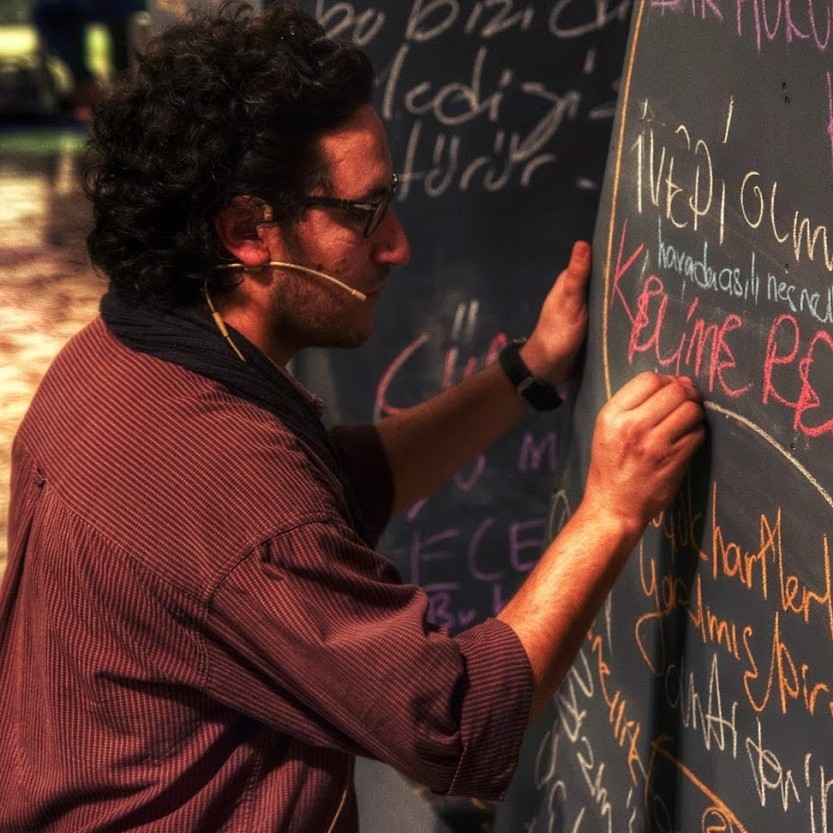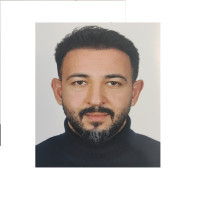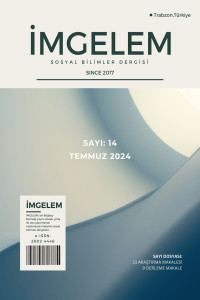Research Article
Review
Issue Reviewers
Nazilli’de 1957 yılında doğdum. İstanbul Üniversitesi Tıp Fakültesini bitirdikten sonra Hacettepe Üniversitesi Tıp Fakültesi Çocuk Sağlığı ve Hastalıkları Anabilim Dalında Çocuk Sağlığı ve Hastalıkları uzmanlık eğitiminin ardından, Çocuk Hematoloji üst ihtisasımı tamamladım. 2001-2011 yılları arasında Sağlık Bakanlığı Kanser Savaş Daire Başkanı olarak görev yaptım.
Yaşamımın kırk yılı akademide ve kamuda yönetici olarak geçmiştir. Hacettepe Üniversitesi’nde 2011-2016 yılları arasındaki rektörlüğüm döneminde “Yeni Anayasa” ve “Yeni YÖK Yasası” çalışmalarına öncülük ettim. Özel ilgi alanım olan politika konusunda Boğaziçi-Avrupa Siyaset Akademisi eğitimlerine katıldım. İkinci lisans olarak Sosyoloji okudum. “Political Science” ve “International Relations and Diplomacy” Eğitim Sertifikaları aldım. Battelle Enstitüsünden “Management of Leadeship”, TODAİ Toplam Kalite Yönetimi kurslarına katıldım. Milli Güvenlik Akademisinde eğitimlere katıldım. Uluslararası birçok kuruluşta konsulton olarak çalışmaktayım. Bin ’den fazla citation indexte listelenmiş, 200’den fazla uluslararası yayınım ve yirmiden fazla kitabım bulunmaktadır. Kuantum düşünce sisteminin politikaya yansımaları konusunda kitabım bulunmaktadır. Bu konuda çalışmalar yapmaktayım.


Lisans:Dokuz Eylül Üniversitesi Buca Eğitim Fakültesi Müzik
Yüksek Lisans: Dokuz Eylül Üniversitesi Güzel Sanatlar Enstitüsü Müzik Bilimleri
Doktora: Dokuz Eylül Üniversitesi Güzel Sanatlar Enstitüsü Müzik Bilimleri


Birce Demiryontar has earned both her BA and MA degrees from the International Relations Department at Koç University. She holds a PhD in Migration Studies from the University of Sussex, awarded in 2017. She currently works as a post-doctoral researcher at the Migration Research Center at Koç University (MiReKoc), where she also serves as the scientific coordinator, most notably overseeing "The European University of Cities in Post-Industrial Transition (UNIC)."
Her work analyses migration governance in the Mediterranean, with a particular emphasis on the external dimension of the European Union's migration policies and the migration diplomacy they generate. More recently, within a sociological framework, she has focused on examining diversity and inclusion in urban settings, particularly the internationalization of higher education institutions and its impact on ethnic minorities and immigrant groups.
Since 2022, she has been a lecturer in the Department of Sociology, where she teaches Migration and Globalization, offering a critical understanding of the complex relationships between these two phenomena and the resulting social, political, and economic transformations on a global scale, emphasizing implications for integration, multiculturalism, and transnationalism.

Burcu ŞANLI, 1986 Tarsus doğumludur. Lisans öğrenimini İstanbul Üniversitesi Siyasal Bilgiler Fakültesi Uluslararası İlişkiler bölümünde 2009'da tamamlamıştır. 2017 yılında, Mersin Üniversitesi Sosyal Bilimler Enstitüsü Kadın Araştırmaları Anabilim Dalı yüksek lisans programından, 2022 yılında ise Mersin Üniversitesi Kadın Araştırmaları Anabilim Dalı-Toplumsal Cinsiyet Çalışmaları doktora programından mezun olmuştur. “Toplumsal Cinsiyet Eşitliği Eğitimi Dersine Yönelik Öğretim Programı Geliştirme Çalışması” başlıklı doktora tezini tamamlamıştır.
‘Kadınların Toplumsal Cinsiyet Rollerine İlişkin Görüşleri’ ‘Kadına İlişkin Namus Algısı’, ‘Üniversite Öğrencilerin Namus Anlayışı’ 'Toplumsal Cinsiyet Eşitliği Eğitimi' 'Roman Kadınların Toplumsal Cinsiyet Eşitliğine Yönelik Görüşleri' konularında uluslararası ve ulusal dergilerde yayınlanmış makaleleri bulunmaktadır. Mersin Üniversitesi, Çukurova Üniversitesi, Çağ Üniversitesi ve İstinye Üniversitesi’nde konferanslar vermiştir.
Mersin Üniversitesi Kadın Sorunlarını Uygulama ve Araştırma Merkezi (MERKAM) koordinatörlüğünde seçmeli bir ders olan ‘Toplumsal Cinsiyet Eşitliği’ dersini 2019-2020 döneminden bu yana yürütmektedir. Mezitli Belediyesi Kadın ve Aile Hizmetleri Müdürlüğü, Eşitlik Birimi ile Kadın ve Çocuk Danışma Merkezi'nin kurucusu ve yönetici olarak görevini sürdürmektedir.






Lisans (1987): Gazi Üniversitesi Gazi Eğitim Fakültesi Müzik Eğitimi Bölümü
Yüksek Lisans (1995): Selçuk Üniversitesi Fen Bilimleri Enstitüsü
Doktora (2012): Necmettin Erbakan Üniversitesi Eğitim Bilimleri Enstitüsü Müzik Eğitimi Bilim Dalı
2. Doktora (2022): Kırıkkale Üniversitesi Sosyal Bilimler Enstitüsü Sosyoloji Anabilim Dalı

Prof. DR. H. Musa TASDELEN
Sakarya University,
Faculty of Social Sciences and Humanitees Türkiye
Name & Surname: H. MUSA TAŞDELEN
Place & Date of Birth: İstanbul, 23.03.1959
Citizenship:Turkish
Marital Status: Married and three children
Languages: English
JOB:
Lecturer Faculty of Humanities and Social Sciences Sakarya University, Adapazarı, Turkey.
CURRENT ADDRESS:
Sakaryal Üniversitesi, İnsan ve Toplum Bilimleri Fakültesi, Sosyoloji Bölümü, Esentepe Kampüsü, Adapazarı
SAKARYA/ TURKEY
E-Mail: tasdelen@sakarya.edu.tr- musatasdelen@yahoo.com
PHONE: +90 264 2956131
MOBILE: +90 543 479 34 34
COURSES TAUGHT:
Globalization Debate
Sociology of migration
Sociology of International Relations,
Intellectuals and Society,
Political Sociology,
Social Structure of Türkiye
EDUCATION:
1983:B.A. at Political Science Faculty, Marmara University, Istanbul, Turkey.
1984: M.A. in Social Structure and Social Change, The Institute of Social Sciences, Istanbul University, Istanbul, Turkey.
Thesis title (in Turkish):”BölgeselGelişme ve Şehirleşme İlişkileri”
Thesis title (in English) : “The Relationships Between Regional Development and Urbanization”
1989: PhD in Social Structure and Social Change, The Institute of Social Sciences, Istanbul University, Istanbul, Turkey.
Thesis title (in Turkish): “Yurtdışından Dönüş Yapan Türk İşçilerinin Sosyo-Ekonomik ve sosyo-Kültürel Meseleleri”
Thesis title (in English): “Socio-Economic and Socio-Cultural Problems of Returned Turkish Workers From Abroad”
1989: Assistant Professor. Fırat Universitesi Fen-Edebiyat Fakültesi Sosyoloji Bölümü Elazığ
1993: Associate Professor (Doçent) . Fırat Universitesi Fen-Edebiyat Fakültesi Sosyoloji Bölümü Elazığ
1997: Professor, Sakarya Üniversitesi Fen-Edebiyat Fakültesi Sosyoloji












Mohammed Moussa is currently an Assistant Professor in the Department of Political Science and International Relations at Istanbul Sabahattin Zaim University. He was previously a Postdoctoral Research Fellow at Tokyo University of Foreign Studies. Mohammed completed his doctorate at the University of Exeter. He has engaged with the challenging questions posed by tradition, politics and Islam in the Middle East in a variety of forums. His publications include a monograph on the political thought of Shaykh Muhammad al-Ghazali (2015) and articles in Journal of North African Studies, Journal of Arab & Muslim Media Research and Annals of Japan Association for Middle East Studies.



Mürsel Bayram received his bachelor’s, master’s and doctoral degrees from Selçuk
University, Ahi Evran University and Kırıkkale University respectively. He is currently the Head of the Department of African Studies at the Institute for Area Studies, Social Sciences University of Ankara. He is the author of Une histoire diplomatique des États ouest-africains and Çin-Afrika İş Birliği (China-Africa Cooperation). Bayram is also the editor of the books titled Mağrib Diplomasisi (Maghreb Diplomacy) Afrika Yıllığı 2021 (Africa Yearbook 2021), Afrika Yıllığı 2022 (Africa Yearbook 2022), Afrika’da Politika ve Uluslararası İlişkiler (African Politics and International Relations) and Doğu Afrika’da Siyaset ve Diplomasi (Politics and Diplomacy in East Africa).


Ankara’da doğan Öztürk Aykaç, lisans derecesini Ortadoğu Teknik Üniversitesi Felsefe Bölümü’nden 2008 yılında almıştır. Yüksek lisansını Karamanoğlu Mehmetbey Üniversitesi’nde hazırlamış olduğu “Bir Beden Sosyolojisi Problemi Olarak Namus Kavramı ve Kadın Bedeni” (2012) konulu tezle tamamlamıştır. Doktora eğitimini Selçuk Üniversitesi Sosyoloji Bölümü’nde 2018 yılında tamamlayan Öztürk Aykaç, “Toplumsal Bir Tip Olarak Ankaralı” isimli doktora tezinin sahibidir. 2009 yılında Karamanoğlu Mehmetbey Üniversitesi Sosyoloji Bölümü’nde Araştırma Görevlisi olarak göreve başlamış olup 2019 yılından beri aynı bölümde Doktor Öğretim Üyesi olarak akademik çalışmalarını sürdürmektedir. 2025 yılında Sosyoloji alanında doçentliğini almıştır. Uzmanlık ve çalışma alanları arasında kent sosyolojisi, kültür sosyolojisi, beden sosyolojisi, medya ve iletişim çalışmaları, nitel araştırma metodolojisi vb. öne çıkmaktadır.

Onur Aydın teaches Russian as a foreign language and Russian literature at Anadolu University (Eskisehir, Turkey). He previously worked at Istanbul and Gazi Universities. Before embarking on his academic career, he worked in a variety of sectors including tourism, textile, automotive, cosmetics, and food. His interests in scholarship include the studies of Russian language, literature, and history. The topic of his master’s thesis is Teaching Russian as a foreign language via distance education and that of his doctoral thesis is Lev Gumilev’s theory of passionarity and a study on the theory in Russian literature: Peter I.

1986 yılında Trabzon’da doğdu. Ankara Üniversitesi Dil ve Tarih-Coğrafya Fakültesi Rus Dili ve Edebiyatı Bölümü’nden 2009 yılında mezun oldu. 2010 yılında Karadeniz Teknik Üniversitesi Fen-Edebiyat Fakültesi’nde Araştırma Görevlisi olarak çalışmaya başladı. 2011 yılında lisansüstü eğitim için Gazi Üniversitesi Sosyal Bilimler Enstitüsü Rus Dili ve Edebiyatı Anabilim Dalı’na atandı. 2013 yılında “Venedikt Yerofeyev’in Moskova-Petuşki Eserinde Anlatım Sanatı” başlıklı yüksek lisans tezini ve 2019’da “Postmodernizmin Rus Edebiyatına Yansımaları” konulu doktora tezini tamamladı. 2016 yılında Karadeniz Teknik Üniversitesi Edebiyat Fakültesi Rus Dili ve Edebiyatı Bölümü’ndeki görevine döndü. Aralık 2019 tarihinden itibaren bu kurumda Araş. Gör. Dr. olarak çalıştı. 2022 yılından itibaren Artvin Çoruh Üniversitesi Fen-Edebiyat Fakültesi Rus Dili ve Edebiyatı Anabilim Dalı'nda Dr. Öğretim Üyesi olarak görev yapmaktadır. Çeşitli kitap ve dergilerde yayınları bulunmaktadır.
Yüksek Lisans Polis Akademisi Güvenlik Bilimleri Enstitüsü Uluslararası Güvenlik
Doktora Polis Akademisi Güvenlik Bilimleri Enstitüsü Uluslararası Güvenlik
Araştırma Alanları: Terörizm, Eleştirel Terör Çalışmaları, El Kaide, DEAS, HTS, ISWAP, Boko Haram, Radikalleşme., Sahel Bölgesi, Afganistan, Libya, Kamu Diplomasisi

RAHŞAN TOPTAŞ
DOÇENT
E-Posta Adresi
Telefon (İş)
Telefon (Cep)
Adres
Öğrenim Bilgisi
2014
Tez adı: II. Abdülhamid Dönemi (1876-1909) îdâdi mektepleri (Türkiye örnekleriyle (2020) Tez
Danışmanı:(DOÇ. DR. HALİL ÖZYİĞİT)
Doktora
24/Ağustos/2020
PAMUKKALE ÜNİVERSİTESİ/SOSYAL BİLİMLER ENSTİTÜSÜ/SANAT TARİHİ (DR)/
2011
Tez adı: İstanbul'da batılılaşma etkisindeki Osmanlı kagir sarayların bahçe kapıları (2014) Tez
Danışmanı:(DOÇ. DR. MEHMET YAVUZ)
Yüksek Lisans
20/Haziran/2014
ATATÜRK ÜNİVERSİTESİ/SOSYAL BİLİMLER ENSTİTÜSÜ/BATI SANATLARI VE ÇAĞDAŞ SANAT (YL)
(TEZLİ)/
2000
Lisans
17/Haziran/2004
ATATÜRK ÜNİVERSİTESİ/EDEBİYAT FAKÜLTESİ/SANAT TARİHİ BÖLÜMÜ/SANAT TARİHİ PR./
Akademik Görevler
DOKTOR ÖĞRETİM ÜYESİ PAMUKKALE ÜNİVERSİTESİ/FEN-EDEBİYAT FAKÜLTESİ/SANAT TARİHİ
BÖLÜMÜ/BATI SANAT VE ÇAĞDAŞ SANAT ANABİLİM DALI 24.08.2023
Dersler * Öğrenim DiliDers Saati
2023-2024
Lisans
Estetik 1 2 Türkçe
Sanat Tarihi Kavramları 1 2 Türkçe
Sanat Tarihi Kavramları 1 (i.ö) 2 Türkçe
Bitirme Tezi 3 Türkçe
2022-2023
1
Lisans
Türkçe
2
Estetik 1
Sanat Tarihi
Sanat Tarihi Kaynakları ve Araştırma Yöntemleri
Estetik II.
Eserler
Uluslararası hakemli dergilerde yayımlanan makaleler:
1.
Türkçe
Türkçe
Türkçe
2
2
2
TOPTAŞ RAHŞAN (2022). Hükümet Konaklarına İzmir Vilayeti'nden İki Örnek: Kemalpaşa (Nif) ve
Bayındır Hükümet Konakları. Uluslararası Sosyal Bilimler Akademik Araştırmalar Dergisi, 6(2), 22
39., Doi: 10.58201/utsobilder.1150639 (Yayın No: 8040279)
2.
3.
4.
5.
TOPTAŞ RAHŞAN (2022). Bitlis Dârülmualîmin Mektebi. Bitlis Eren Üniversitesi Sosyal Bilimler
Dergisi, 11(2), 233-253., Doi: 10.58201/utsobilder.1150639 (Yayın No: 8040738)
TOPTAŞ RAHŞAN (2017). Niğde Sancağı Dârülmuallimîn Mektebi. ASOSJOURNAL, 5(60), 321-341.,
Doi: http://dx.doi.org/10.16992/ASOS.13073 (Yayın No: 3734807)
Journal
TOPTAŞ RAHŞAN (2017). Türkiye'de Pop Sanat ve Resim. Uluslararası Sosyal Araştırmalar
DergisiThe
of
International
http://dx.doi.org/10.17719/jisr.2017.1778
Social
(Yayın
Research,
No:
10(51),
3735116)
433-444.,
Doi:
TOPTAŞ RAHŞAN (2016). Bergama Hükûmet Konağı Örneğinde II Abdülhamit Dönemi Hükûmet
Konakları. Uluslararası Sosyal Araştırmalar DergisiThe Journal of International Social Research,
9(47), 411-428., Doi: 10.17719/jisr.2016.1389 (Yayın No: 3064907)
6.
TOPTAŞ RAHŞAN (2015). Gate of the Treasury of Istanbul Dolmabahçe Palace ın the Context of
Palacearchıtecture ın Westernızatıon Perıod. The Journal of International Social Research, 8(38),
512-533., Doi: 1307-9581 (Yayın No: 1684483)
B. Uluslararası bilimsel toplantılarda sunulan ve bildiri kitaplarında
(proceedings) basılan bildiriler :
1.
2.
3.
TOPTAŞ RAHŞAN (2022). Türkiye’de Minimal Sanat Uygulamaları Üzerine Bir Deneme.
INTERNATIONAL MODERNISM AND POSTMODERNISM STUDIES CONFERENCE 2022, Doi:
10.47333/modernizm.2022.73 (Özet Bildiri/Sözlü Sunum) (Yayın No: 8111879)
TOPTAŞ RAHŞAN (2022). The Dıscussıon of Photo Album Named From 1928 Actıvıtıes of Specıal
Provıncıal Admınıstratıon as a Resource in Terms of Art Hıstory. International Marmara Social
Sciences Congress (Imascon Autumn 2022) 09-10 December 2022 KOCAELI, 18-18. (Özet
Bildiri/Sözlü Sunum) (Yayın No: 8111633)
TOPTAŞ RAHŞAN (2023). Osmanlı Döneminde Şehrin Eğitimine Katkı Sağlayan Bir Mektep
Diyarbakır Sanayi Mektebi
. INTERNATIONAL INTERDISCIPLINARY CONGRESS OF WOMEN IN SCIENCE "Diversity, Careers,
Interdisciplinarity" January 13-14, 2023 / Sivas-TÜRKİYE, 329-329. (Özet Bildiri/Sözlü Sunum)
(Yayın No: 8571054)
C. Yazılan ulusal/uluslararası kitaplar veya kitaplardaki bölümler:
C2. Yazılan ulusal/uluslararası kitaplardaki bölümler:
1.
2.
3.
Güncel Sosyal ve Beşerî Bilimler Araştırmaları Kavramlar, Araştırmalar ve Uygulama, Bölüm
adı:(Uluslararası Mimari ve Türkiye'de İlk Uygulayıcıları: Akademisyen-Yabancı Mimarlar (1927
1940)) (2023)., TOPTAŞ RAHŞAN, Livre De Lyon, Editör:Sevilay Özer, Ruhi İnan, Basım sayısı:1,
Sayfa Sayısı 335, ISBN:978-2-38236-531-1, Türkçe(Bilimsel Kitap) (Yayın No: 8557571)
Teoriden Pratiğe Mekan ve Sanat, Bölüm adı:(Konumlandırışına Göre Saray Komplekslerinin
Osmanlı-Avrupa (Batı) Ekseninde Dönüşümüne Karşilaştırmalı Bir Bakış) (2023)., TOPTAŞ
RAHŞAN, İzmir Katip Çelebi Üniversitesi Yayınları, Editör:Prof. Dr. Fikri Salman Prof. Dr. Oğuz
Dilmaç Doç. Dr. Uğur Bakan Doç. Dr. Sehran Dilmaç Doç. Dr. Fatma Gürsoy Doç. Dr. Ufuk Bakan
Doç. E. Nilüfer Üstündağ, Basım sayısı:1, Sayfa Sayısı 221, ISBN:978-605-72469-1-2,
Türkçe(Bilimsel Kitap) (Yayın No: 8614053)
Sosyal Bilimlerde Aktüel Araştırmalar: Etkiler-Sonuçlar (2), Bölüm adı:(Osmanlı Dönemi Îdâdi
Binaları Bursa Vilayeti (Hüdavendigar) Örneği) (2023)., TOPTAŞ RAHŞAN, Kalan Yayınevi,
Editör:Yusuf Arslan, Basım sayısı:1, Sayfa Sayısı 395, ISBN:978-605-4915-68-2, Türkçe(Bilimsel
Kitap) (Yayın No: 8557724)
2
4.
Sosyal Bilimlerde Aktüel Araştırmalar: Etkiler ve Sonuçlar (4), Bölüm adı:(Osmanlı Mimarlığında
Etnodinsellik ve Rum Örneği Vailakis İoannidis (1889-1903)-Yanko İoannidis) (2023)., TOPTAŞ
RAHŞAN, Kalan Yayınevi, Editör:Yusuf Arslan, Basım sayısı:1, Sayfa Sayısı 224, ISBN:978-605
4915-81-1, Türkçe(Bilimsel Kitap) (Yayın No: 8559779)
5.
6.
7.
8.
Sosyal Bilimlerde Seçme Konular -8, Bölüm adı:(Bosna-Hersek Saat Kuleleri ve Gornj Vakuf Saat
Kulesi) (2022)., TOPTAŞ RAHŞAN, Iksad Publications, Editör:Çiftçi Hasan, Erdoğan Merve,
Demirdöğmez Mehmet, Basım sayısı:1, Sayfa Sayısı 587, ISBN:978-625-6955-36-3,
Türkçe(Bilimsel Kitap) (Yayın No: 8041967)
Sosyal Bilimlerde Güncel Tartışmalar 10, Bölüm adı:(Türk Resminde Müstakil Ressamlar ve
Otoportreleri) (2022)., TOPTAŞ RAHŞAN, BİLGİN KÜLTÜR SANAT YAYINLARI, Editör:ZEYNEL
KARACAGİL-MERYEM BULUT, Basım sayısı:1, Sayfa Sayısı 1494, ISBN:978-625-7799-72-0,
Türkçe(Bilimsel Kitap) (Yayın No: 8110911)
Sosyal Bilimlerde Akademik Analiz ve Tartışmalar, Bölüm adı:(Erzurum’da Osmanlı Tanzimat ve
Meşrutiyet Dönemi Kamu Binalarının Arşiv Belgeleri Üzerinden Değerlendirilmesi) (2022).,
TOPTAŞ RAHŞAN, Özgür Yayınları, Editör:Aydın, Ahmet; Aydın Taner, Basım sayısı:1, Sayfa Sayısı
486, ISBN:978-975-447-441-1, Türkçe(Bilimsel Kitap) (Yayın No: 8041750)
Prof. Dr. İsmail Çetişli Hatıra Kitabı, Bölüm adı:(Monochrome Resim ve Mavinin Ressamı Mehmet
Bünyamin Pehlevan) (2016)., TOPTAŞ RAHŞAN, AKÇAĞ, Editör:MEHMET SUSUR ÇELEPİ, Basım
sayısı:1, Sayfa Sayısı 491, ISBN:9786053422778, Türkçe(Bilimsel Kitap) (Yayın No: 3066524)
D. Ulusal hakemli dergilerde yayımlanan makaleler :
1.
2.
3.
TOPTAŞ RAHŞAN (2023). Erken Rönesans Dönemi Mimarlarından Filippo Brunelleschi'nin (1376
1446) Eserlerinde Matematiksel Oranlar ve Perspektif. Dicle Üniversitesi Sosyal Bilimler Enstitüsü
Dergisi(32), 1042-1062. (Kontrol No: 8255969)
Evran
Üniversitesi
TOPTAŞ RAHŞAN (2023). 2006-2017 Yılları Arasında İnşa Edilen Post-Modern Hükümet Konakları.
Ahi
Sosyal
Bilimler
Enstitüsü
10.31592/aeusbed.1243931 (Kontrol No: 8552267)
Dergisi,
9(2),
532-551.,
Doi:
TOPTAŞ RAHŞAN (2023). Rönesans Dönemi Resim Sanatında Vaftiz Sahnelerinin Bir Grup Sanatçı
Üzerinden Değerlendirilmesi. ARTS: Artuklu sanat ve beşeri bilimler dergisi (Online)(10), 59-83.,
Doi: 10.46372/arts.1300415 (Kontrol No: 8552312)
4.
5.
6.
TOPTAŞ RAHŞAN (2022). Türkiye'de Dijital Sanat, Sanatçıları ve Eserleri Hakkında Bir Araştırma.
STAR Sanat ve Tasarım Araştırmaları Dergisi, 3(5), 170-186. (Kontrol No: 8040502)
TOPTAŞ RAHŞAN (2022). Meşrutiyet’ten Günümüze Yozgat Lisesi (Üslup, Mimari ve Tarihi
Özellikleri ile).
Bozok Üniversitesi İlahiyat Fakültesi Dergisi, 21(21), 227-255. (Kontrol No:
8041257)
TOPTAŞ RAHŞAN (2017).
Niğde İdadisi.
Turkish Studies, 12(26), 185-222., Doi:
http://dx.doi.org/10.7827/TurkishStudies.12352 (Kontrol No: 3806078)






İlk, orta ve lise eğitimimi Ankara'da tamamladım. 2004 yılında Gazi Üniversitesi Eğitim Fakültesi Felsefe Grubu Öğretmenliği bölümünde lisans eğitimini tamamladım. 2008 yılında Gazi Üniversitesi Eğitim Bilimleri Enstitüsü Felsefe Grubu Eğitimi bölümünde "Platon ve Farabi'nin Siyaset Felsefelerinin Karşılaştırılması ve Siyaset Felsefelerinde Erdem" başlıklı tezim ile yüksek lisans eğitimimi tamamladım. 2021 yılında Gazi Üniversitesi Eğitim Bilimleri Enstitüsü Felsefe Grubu Eğitimi bölümünde "Kierkegaard Felsefesinde 'Kendi Olma' Problemi ve Çağımıza Yansımaları" başlıklı tezim ile doktora eğitimimi tamamladım. 2004 yılından beri MEB'de felsefe grubu öğretmeni olarak görev yapmaktayım. Öğretmen Yetiştirme Eğitimi Genel Müdürlüğü ve Ortaöğretim Genel Müdürlüğü bünyesinde farklı proje ve çalışmalarda görev aldım. Eğitim ve felsefe alanlarında bildiri, makale ve kitap bölümü çalışmalarım bulunmaktadır. Evli ve iki çocuk annesiyim. Ankarada ikamet etmekteyim.


turker.koruk.mail@gmail.com - Lisans eğitimini İzmir Ekonomi Üniversitesi Sinema ve Dijital Medya Bölümü’nde, doktorasını Ege Üniversitesi Radyo Televizyon Sinema Bölümü’nde tamamladı. Çeşitli mecralarda roman, öykü, çeviri, deneme, makale ve eleştirileri yayınlandı.




Lecturer in Political Science and International Relations at Akli Mohand Oulhadj University, Bouira, Algeria, specializing in International Relations. Holder of a PhD in Mediterranean and Maghreb Studies: Cooperation and Security, and a Master's degree in Defense and Security Policies. He has scientific publications and contributions in national and international scientific conferences.




Aim & Scope
Publication Content
Imgelem Journal is an international peer-reviewed academic journal published twice a year (July-December) by the BILGITOY Association. (Article submission dates: For the July issue, January 1st - May 30th; For the December issue, August 1st - October 31st). Article submissions outside of these dates will not be accepted. Submissions arriving after the deadline should apply for the next issue within the valid dates. Imgelem Journal includes original scientific publications. All published articles, except for editorial works, are subjected to double-blind peer review process.
Aim and Scope
The aim of the journal is to contribute to science by publishing high-quality studies of scientific significance. Written from a sociological perspective, original research articles, reviews, theoretical articles, conference (bilgitoy) evaluations, and book reviews are published from all fields of social sciences; if this condition is not met, only original research articles written in the fields of Sociology, Political Science, and International Relations are accepted. Imgelem Journal is an academic publication aiming to conduct scientific and academic publishing within defined boundaries, being independent, double-blind peer-reviewed, open access, and online. Articles submitted for publication must contain original data that has not been previously published or submitted elsewhere for publication. Except for research outputs produced by a group, submitted articles can have a maximum of three authors. Manuscripts deemed suitable according to Imgelem submission rules and journal scope are sent to at least two expert reviewers for scientific evaluation. The Imgelem Editorial Board members deliberating on suitability then consider the reviewers' comments for each submission. The final decision for all submitted manuscripts rests with the Chief Editor. The Publication Board of Imgelem Journal commits to adhering to the criteria the Committee on Publication Ethics (COPE).
Subject Category:
Social Sciences: Sociology, all sub-disciplines of Sociology, Political Science, International Relations
Keywords: Sociology; Family Sociology, Military Sociology, Body Sociology, Knowledge Sociology, Labor Sociology, Sociology of Religion, Literary Sociology, Education Sociology, Economic Sociology, Ethnic Sociology, Development Sociology, Youth Sociology, Sociology of Underdevelopment, Migration Sociology, Legal Sociology, Communication Sociology, Urban Sociology, Rural Sociology, Small Group Sociology, Cultural Sociology, Occupational Sociology, Sociology of Modernity, Music Sociology, Health Sociology, Art Sociology, Industrial Sociology, Leisure Sociology, Political Science, Political Sociology, Sports Sociology, Crime Sociology, Historical Sociology, Gender Sociology, International Relations, Food Sociology.
Publication Language
Full Text Publication Language:
• Primary Language: Turkish
• Secondary Language: English
• Tertiary Language: Uzbek
• Quaternary Language: Russian Content Written in Turkish, English, and Latin or Cyrillic Alphabet:
• Article Title: Turkish & English
• Author Name: Turkish or English (in Latin Alphabet)
• Author Affiliation: Turkish or English (in Latin Alphabet)
• Keywords: Turkish & English
• References: Turkish, English, Uzbek, or Russian (in Latin or Cyrillic Alphabet)
Full Text: Turkish, English, Uzbek, or Russian (in Latin or Cyrillic Alphabet)
Article Submissions
Submitted articles must conform to the aim and scope of the journal. Original, unpublished, and not under consideration for review elsewhere, each article approved by all authors for content and submission will be considered for evaluation.
Target Audience
The target audience includes professionals, experts, academics, researchers, as well as undergraduate, graduate, and doctoral students interested in all fields of Social Sciences. It aims to contribute to the widespread adoption of continuous professional development and research culture.
Originality of Articles
Imgelem does not accept previously published works elsewhere. However, occasionally, articles published in another language may be considered for review if they have been revised and improved. Imgelem Journal does not publish translated articles.
Author Guidelines
Article Preparation
Language: Turkish, English, Uzbek, and Russian
Types of Articles: Research Article, Review Article, Theoretical Article, Book Review, Conference Evaluation Note.
However, authors are advised to be as concise as possible to ensure the spread of the work.
Article Format:
1. Font: Times New Roman 12-point font style should be used for the text. Line spacing should be set to 1.5 lines with paragraph spacing options set to 6 points before and after paragraphs.
2. Paragraph Format: Paragraphs should be justified. The first paragraph under each heading should be left-aligned without indentation. However, the first line of subsequent paragraphs under the same heading should have a 1.25 indentation.
3. Word Limit: Articles should not exceed 10,000 words, including all notes and references.
4. Headings: The Article Title should be written in black (bold) and 14-point font size, with no more than 16 words, all in CAPITAL LETTERS and centered. The English title should also be in all CAPITAL LETTERS but with 10-point font size, black (bold), and centered. Subheadings, excluding INTRODUCTION, CONCLUSION, and REFERENCES, should have only the first letter capitalized, with the rest in lowercase, written in black (bold) and 12-point font size. Additionally, no heading should be numbered using digits.
5. Abstract: The Abstract and Özet should be prepared using 10-point font size, single line spacing, and Times New Roman font. The Özet should have between 100-250 words, should not contain citations, and should be in a single paragraph.
6. Extended Abstract: Authors are required to include an extended English abstract, which should consist of at least 1000 words, equivalent to 10% of the length of the Turkish article. This text should be located below the "ABSTRACT" and above the "INTRODUCTION".
7. Keywords: Should consist of 5-8 words. Keywords should be provided with each word capitalized.
8. Tables-Figures: The text and numbers within tables should be set in Times New Roman font size 10. The title of tables, figures, and graphs should be provided above the table, and the source should be given below the table. The title should be in bold format (Table: 1. Figure: 1. Diagram: 1.).
9. Quotations: When providing block quotations within the text, they should be written in 11-point font size, with 1.15 line spacing, justified, and with a 1.25-inch indentation from both the left and right sides. Quotations should begin and end with quotation marks, and punctuation should be placed after the closing quotation mark.
10. Footnotes: In-text citation style is preferred over the use of footnotes and endnotes. Therefore, footnotes should be used sparingly. Footnotes can be used only when absolutely necessary for explanatory notes, in 10-point font size, using Times New Roman font, indicated with an asterisk or number.
11. Author Name(s) and Affiliation(s): The author's name should be aligned to the right below the title of the article. The surname of the author should be written in capital letters. The author's title, affiliation, email address, and ORCID number should be provided in the footnote. The initial submission file should not contain any author identification or any information that would disclose the identity of the author(s). Authors should add their identification details in the revised version after the evaluation process is completed.
Visual Format: A4 Portrait, Margins (Normal) (2.5 cm on all sides [right-left-top-bottom])
Reference Style: Imgelem Journal follows the APA 6 system. For matters not found in the style guide, refer to APA 6 version. URL: http://www.apa.org
Authorship Change: Authorship changes are only processed before acceptance of the article. Authors should carefully review and confirm the list and order of authors before submitting their articles, providing the final author list during the original submission
SPELLING RULES:
1. Single Author, Single Work
Reference Example: (Alptekin, 2013).
Page Numbered: (Alptekin, 2013: 85)
2. Citation Example from a Secondary Source
(Alptekin, 2013 as cited in Karyelioğlu, 2016: 20).
3. Reference Example for a Single-Author Book
Aydın, M. (2017). Sociology of Change. Istanbul: Açılım
4. Reference Example for a Two-Author Book
Alptekin, M. Y., & Karyelioğlu, S. (2016). Construction Business in Trabzon: Social and Economic Aspects. Trabzon: Karadeniz Technical University Press.
Citation to the same book: (Alptekin & Karyelioğlu, 2016: 139).
5.Reference Example for a Three-Author Book
Alptekin, M. Y., Karyelioğlu, S., & Fidan, S. (2019). Patriotism in Theory and Practice: Local and National Dimensions - A Study of the Eastern Black Sea Region Centered on Trabzon. Ankara: Gece Akademi.
Citation to the same book: (Alptekin et al., 2019: 52).
6. Reference Example for a Book with More Than Three Authors
Büyüköztürk, Ş., Kılıç-Çakmak, E., Akgün, Ö. E., et al. (2017). Research Methods in Science. Ankara: Pegem.
Citation to the same book: (Büyüköztürk et al., 2017: 13).
7. Reference Example for a Translated Book
Giddens, A. (2012). Sociology. (Trans. C. Güzel). Istanbul: Kırmızı
8. Formatting of a Single Author Article in the References
Alptekin, M. Y. (2013). Geographer Approach in Sociology and Ecological Interpretation of Social Character in Trabzon, Journal of Black Sea Studies, (15), 77-98.
Note: As the number of authors increases in the article, the rules in the book citation examples are applied in the same way
9. Articles in Electronic Newspapers, Magazines, or Websites with Identified Authors
Gallagher, J. (2020, April 2). Coronavirus: What Are the Effects of Covid-19 on the Human Body? Retrieved December 17, 2021, from https://www.bbc.com/turkce/haberler-dunya-51910851.
Citation to the same article: (Gallagher, 2020).
10. For articles in digital newspapers, magazines, and websites with unknown authors:
URL-1: "Coronavirus Doesn't Infect Turks". (2020, March 5). https://www.yenicaggazetesi.com.tr/oytun-erbas-corona-virus-turklere-bulasmiyor-270766h.htm (Accessed: December 17, 2021).
In-text citation to the same source: ("Coronavirus Doesn't Infect Turks," 2020).
Note: When citing a page from a website of an organization without individual authors, the name of the organization is used as the author.
Example: Ministry of Interior. (2020, December 1). Circulars on New Restrictions and Measures within the Scope of the Fight Against Coronavirus. https://www.icisleri.gov.tr/en/circulars-on-new-restrictions-and-measures-within-the-scope-of-the-fight-against-coronavirus (Accessed: December 17, 2021). Citation to the same website: (Ministry of Interior, 2020).
11. For Press News and Texts with Unknown Authors
Diyanet Gazette, "Patriotism is a Matter of Faith: Those Who Fought in Gallipoli Fulfilled the Command of the Quran," August 30, 1971.
In-text citation to the same source: (Patriotism is Faith, 1971).
12. For Press News and Texts with Known Authors
Azokur, M. (1971, August 30). Patriotism is Faith: Those Who Fought in Çanakkale Fulfilled the Command of the Quran. Diyanet Gazetesi.
In-text citation to the same source: (Azokur, 1971)
13. Reference Example for an Edited Book
Usta, V. (Ed.). (2015). Şalpazarı History-Culture-Human. Trabzon: Serander Yayınları.
14. Reference Example for a Chapter in an Edited Book
Alptekin, M. Y. (2017). Ethno-Demography of Şalpazarı from 1835 to the Present. In V.
Usta (Ed.), Şalpazarı History-Culture-Human (pp. 139-226). Trabzon: Serander Yayınları.
In-text citation to the same chapter: (Alptekin, 2017: 216).
15. Reference Example for an Edited Book
Alptekin, M. Y. (Ed.). (2020). Society and Culture in Eastern Black Sea. Trabzon: Serander Yayınları.
16. Reference Example for a Chapter in an Edited Book
Köksal, S. (2020). South Turkmen in Trabzon. In M. Y. Alptekin (Ed.), Society and Culture in Eastern Black Sea (pp. 9-24). Trabzon: Serander Yayınları.
In-text citation to the same chapter: (Köksal, 2020: 9).
17. Reference Example for a Thesis
Alptekin, M. Y. (2000). Turkish Interpretation of Islam (Turkish Islam). Unpublished Master's Thesis, Istanbul University- Institute of Social Sciences.
In-text citation to the same thesis: (Alptekin, 2000).
18. Reference Example for an Encyclopedia
Köprülü, M. F. (1972). Ahmed Yesevi. İslam Encyclopedia (Vol. 1, pp. 750-788). Ankara: Ministry of National Education.
In-text citation to the same encyclopedia entry: (Köprülü, 1972: 780).
19. Reference Example for a Conference Paper
Alptekin, M. Y. (2017). Conservative Tourism: Tourism Activities and Social Interaction in Trabzon/Uzungöl (pp. 120-150). In Euroasian Conference on Language & Social Science Proceedings. Antalya: www.eclss.org
In-text citation to the same paper: (Alptekin, 2017: 145).
20. Reference Example for Parliamentary Records
Grand National Assembly of Turkey (GNAT), Proceedings Record, Vol. 8, Vol. 13, 4th Session, November 10, 1948.
In-text citation to the same record: (GNAT PR 1948, November 10).
21. Twitter Profile Reference Example
Koca, F. [@drfahrettinkoca]. (n.d.). Tweets [Twitter profile]. Twitter. https://twitter.com/drfahrettinkoca (Accessed: March 25, 2022). In-text citation to the same source: (Koca, n.d.)
22.Twitter Tweet Kaynakça Örneği
Koca, F. [@drfahrettinkoca]. (2022, 25 Mart). COVID-19 DÜŞÜŞTE! Bugünkü vaka sayısı 15.303, vefat sayısı 68. Salgının üstesinden gelmek iyice kolaylaşıyor. [Tweet]. Twitter. https://twitter.com/drfahrettinkoca/status/1507413709093683200?cxt=HHwWgICqwYSytOspAAAA (Erişim: 25.03.2022).
Aynı Kaynağa Metin İçi Atıf: (Koca 2022).
Reference Style
Articles must be prepared according to the APA 6 Citation System.
Final Checklist
This checklist is intended to be useful during the final review of the submitted article before it is uploaded to the journal system.
Make sure the following items are included:
1. Author information is added
• Email address
• Full postal address
• ORCID number
2. All necessary files have been uploaded.
• Article text
• Copyright Agreement
•Cover Page
3. "Grammar check" and "language check" have been performed on the article.
4. All references mentioned in the bibliography are cited in the text, and vice versa.
Article Submission
In submissions, the account of the corresponding author must be used. All correspondence regarding the submission is sent to the responsible author via email through the journal system.
When uploading the article file, make sure that it does not contain any elements that would disclose the author's identity or institutional information due to the double-blind peer review process.
Files to be Uploaded Separately:
1. Full Article Text
2. Copyright Agreement
During submission, the following commitments are obtained from the author electronically:
1. I am authorized to submit this work to your journal/authorized by co-authors.
2. The article is original, has not been formally published in any peer-reviewed journal, is not under consideration for publication by any other journal, and does not violate any existing copyright or other third-party rights.
3. I/we agree that if the article is accepted for publication editorially, it will be licensed under the Creative Commons Attribution-NonCommercial 4.0 International (CC BY-NC 4.0) License.
4. The copyright and intellectual property rights of the author(s) or, if applicable, the employer of the author(s) are reserved. The author(s) undertake(s) that the publisher shall have no liability for any claims for damages or lawsuits for copyright infringement by third parties, and that all responsibility lies with them.
5. The author(s) undertake(s) that there are no elements of crime or unlawful expression in the article, and that no material or method contrary to law was used during the research.
Ethical Principles and Publication Policy
Publication Ethics Principles
Publication Ethics can be defined as a self-regulatory mechanism that insists on honesty on behalf of authors, reviewers, and publishers to establish higher editorial processing standards. Ethical standards for publication exist to ensure high-quality scientific publications, foster public trust in scientific findings, and uphold the credibility of people's ideas.
• Honest researchers do not commit plagiarism
• They do not misrepresent sources
• They do not conceal objections they cannot refute
• They do not distort opposing views
• They do not destroy or conceal data
Peer-reviewed studies are those that support and implement the scientific method. At this point, it is of great importance that all parties involved in the publication process (authors, readers and researchers, publishers, reviewers, and editors) adhere to ethical principles. Imgelem Journal adheres to national and international standards in research and publication ethics. It complies with the Press Law, the Law on Intellectual and Artistic Works, and the Higher Education Institutions Scientific Research and Publication Ethics Directive. Imgelem Journal has adopted the International Ethical Publishing Principles published by the Committee on Publication Ethics (COPE), the Directory of Open Access Journals (DOAJ), and the Open Access Scholarly Publishers Association (OASPA). Additionally, it commits to complying with the decisions of the Turkish Editors Workshop.
• Press Law (National Legislation)
• Law on Intellectual and Artistic Works (National Legislation)
• Higher Education Institutions Scientific Research and Publication Ethics Directive (National Legislation)
• Transparency and Best Practices Principles in Academic Publishing (International Criteria)
• Decisions of the Turkish Editors Workshop (National Criteria)
Duplicate Publication
Duplicate publication refers to the publication of the same article or substantially similar articles in multiple journals. The editor returns such articles without review. Subsequently, the editor may impose an embargo on the author attempting duplicate publication for a certain period. The editor may also disclose this situation to the public, perhaps simultaneously with the editor of the previous journal where the article was published, or apply all of these measures together.
Simultaneously submitting the same work to multiple journals
Authors cannot submit the same article to multiple journals simultaneously. If the editor becomes aware of potential simultaneous submission, they reserve the right to consult with other editors who have received the manuscript. Additionally, the editor may return the manuscript without review, reject it without considering the reviews, or make this decision in consultation with other relevant editors. They may also decide not to accept submissions from the authors for a certain period of time. Furthermore, they may write to the authors' employers or implement all of these measures together
Plagiarism Prevention Control
Presenting the ideas, methods, data, applications, writings, figures, or works of others as if they were one's own, either partially or entirely, without proper attribution to the owners, is considered plagiarism.
Imgelem Journal conducts scans to prevent plagiarism for all submitted articles. The works under review are checked for plagiarism using Turnitin & iThenticate software. A similarity rate of less than 20% is expected. However, the primary measure of similarity rate is the author's compliance with citation and referencing rules. Even if the similarity rate appears to be 1%, if proper citation and referencing are not adhered to, plagiarism may still be present. Therefore, citation and referencing rules should be known and carefully applied by the author.
Plagiarism, duplication, false authorship/denied authorship, research/data fabrication, article slicing, slicing for publication, copyright infringement, and hiding conflicts of interest are considered unethical behaviors. All articles that do not adhere to accepted ethical standards are removed from publication. This includes articles that are subsequently found to contain possible violations or inappropriate content after publication.
Forgery
Generating data not based on research, manipulating or altering the presented or published work based on false data, reporting or publishing them, portraying an unperformed study as if it had been conducted. It also involves tampering with research records and obtained data, representing methods, devices, and materials not used in the research as if they were used, not considering data that does not fit the research hypothesis, manipulating data and/or results to fit relevant theories or assumptions, and distorting or shaping research results in line with the interests of the supported individuals and organizations.
Protection of Participants' Personal Data
Imgelem Journal requires that all research involving personal or sensitive data or materials related to human participants, which are not legally public, be subject to formal ethical review.
Addressing Allegations of Research Misconduct Imgelem Journal adheres to COPE's Ethical Guidelines for Peer Reviewers. Imgelem Journal's editors will take measures to prevent the publication of articles where plagiarism, citation manipulation, data falsification, data fabrication, and other research misconduct have occurred. Under no circumstances will Imgelem Journal's editors knowingly allow such misconduct to take place. Imgelem Journal's editors will follow COPE's guidelines in addressing any allegations of research misconduct related to an article published in their journal.
Ethical Violation Reports
Readers can notify Imgelem Journal by sending an email to imgelem@bilgitoy.org if they notice a significant error or inaccuracy in an article published in Imgelem Journal, or if they have any complaints regarding editorial content (plagiarism, duplicate publications, etc.). We welcome such submissions as they provide us with an opportunity to improve, and we will respond promptly and constructively.
Correction, Retraction, Expression of Concern
Editors may consider publishing a correction if minor errors that do not affect the findings, interpretations, and conclusions of the published article are identified. When major errors or violations that invalidate the findings and conclusions are found, editors should consider retracting the article. If there is a possibility of research or publication misconduct by the authors; if there is evidence that the findings are not reliable and the authors' institutions have not investigated the matter, or if a possible investigation seems unjust or inconclusive, editors should consider issuing an expression of concern. COPE guidelines are followed regarding correction, retraction, or expression of concern.
Publication of Studies Based on Surveys and Interviews
Imgelem Journal adopts the principles outlined in the Committee on Publication Ethics (COPE) "Code of Conduct and Best Practice Guidelines for Journal Editors" and "Code of Conduct for Journal Publishers" to establish ethical assurance in scientific publishing. Accordingly, the following points should be adhered to in studies submitted to the journal:
1) For research conducted in all fields requiring ethical approval, ethical approval must be obtained (this approval should be documented and stated in the article).
2) In studies requiring ethical approval, information about the approval (committee name, date, and number) should be included in the methods section and additionally on one of the first/last pages of the article; in case reports, information should be provided in the article about obtaining informed voluntary consent/assent forms.
Special Issue Publication Policy
Upon request of the Editorial Board, a special issue may be published once a year in our journal. The submitted articles for inclusion in the special issue undergo initial editorial review. Subsequently, they are evaluated for compliance with the journal's writing guidelines and undergo similarity checks to prevent plagiarism. Following these stages, they proceed to peer review using a double-blind review model.
Editorial Confidentiality Obligation
The editors of Imgelem Journal treat all submitted manuscripts as confidential documents; this means that they will not disclose information about a manuscript to anyone without the authors' permission. During the manuscript review process, the following individuals may have access to the manuscripts: Editors, Reviewers, Editorial Board Members. The only circumstance under which details about a manuscript may be communicated to a third party without the authors' permission is if the editor suspects serious research misconduct.
Scientific Misconduct Allegations-Suspicions
There are various definitions of scientific misconduct. Imgelem Journal addresses these issues on a case-by-case basis while following the guidance established by major publication ethics institutions. Editors are obligated to take action if they suspect or receive an allegation of misconduct. This duty encompasses both published and unpublished articles. Editors should not simply reject articles that raise concerns about potential misconduct. They are ethically obligated to pursue cases alleged as misconduct. Editors should follow COPE flowcharts when appropriate. Editors should first request a response from individuals suspected of misconduct. If unsatisfied with the response, they should request an investigation from the relevant employer or institution. Editors should make every reasonable effort to ensure an appropriate investigation into alleged misconduct is conducted; failing which, they should persist in seeking a resolution to the issue. This is a laborious but crucial task.
Imgelem Journal adheres to COPE's Ethical Guidelines for Peer Reviewers. Imgelem Journal's editors will take measures to prevent the publication of articles where plagiarism, citation manipulation, data falsification, data fabrication, and other research misconduct have occurred. Under no circumstances will Imgelem Journal, or its editors, knowingly permit such misconduct to occur. Imgelem Journal's editors will follow COPE's guidelines in addressing any allegations of research misconduct related to an article published in their journal.
Reviewers should inform the Editor if they suspect research or publication misconduct.
The Editor is responsible for carrying out necessary procedures in accordance with COPE recommendations.
Imgelem Journal commits to applying COPE flowcharts when facing allegations of misconduct on the following or similar topics:
• What to do if suspicion arises about redundant publication
• What to do if suspicion arises about plagiarism
• What to do if suspicion arises about fabricated data
• What to do if there is a request for a change of authorship
• What to do if suspicion arises about undisclosed conflicts of interest
• What to do if suspicion arises about unjust or gift authorship
• What to do if there is suspicion of ethical issues in a paper
• What to do if suspicion of ethical violation is directly reported via email, etc.
• What to do if suspicion of ethical violation is announced via social media
Complaint Procedure
This procedure applies to complaints regarding content, procedures, or policies within the responsibility of Imgelem Journal or our editorial team. Complaints can provide an opportunity for improvement and encouragement, and we aim to respond quickly, courteously, and constructively.
Complaints should relate to content, procedures, or policies within the responsibility of Imgelem Journal or our editorial team. Complaints should be sent directly to imgelem@bilgitoy.org via email and will be treated confidentially. The Editor responds to complaints promptly. The Editor follows the procedure outlined in the COPE flowchart regarding complaints.
Complaints are reviewed by a relevant member of the editorial team, and if unresolved, the following processes are followed:
• If the initial response is deemed inadequate, the complainant may request that their complaint be forwarded to a more senior member of the journal.
• If the complainant remains unsatisfied, complaints may be directed to the Chief Editor.
• A full response will be provided ideally within two weeks.
COPE publishes a code of conduct for editors of scientific journals. This will facilitate the resolution of disputes between editors, journals, and publishers, but complaints can only be referred here after exhausting the journal's own complaint procedures.
Appeal Process
We welcome serious appeals regarding evaluations made by editors and reviewers. If you believe that your article was rejected because we misunderstood its scientific content, please send an appeal message to our editorial team at imgelem@bilgitoy.org. Please refrain from attempting to submit a revised version of your article at this stage. If, after reading your appeal letter, we understand that your appeal is justified, we may invite you to submit a revised version of your article. This will then undergo the external peer review process again. Please include as much detail as possible in your appeal letter. Lastly, we can only consider one appeal per article, so please take the time and effort to clearly articulate your appeal in detail - you have one chance, so make it count. We have found that prolonged deliberation over rejected articles is generally unsatisfactory for both authors and editors, so we do not process multiple appeals for the same work.
Conflicts of Interest
A conflict of interest arises when professional judgment regarding a primary interest could be influenced by a secondary interest (such as financial gain or personal competition). We believe that in order to make the best decision on how to handle an article, we need to know authors' competing interests, and if we publish the article, readers should also be aware of them.
Conflicts of interest are any financial or other interests that could lead to a person being compromised in their work, significantly bias their objectivity, or provide an unfair advantage to any individual or organization. All sources of financial support received for the conduct of the research and the preparation of the article should be disclosed, as well as the role of sponsors in the study. If there is no funding source, this should also be stated. Examples of potential conflicts of interest that need to be disclosed include consultancy, salary receipt, and grants. Potential conflicts of interest should be disclosed at the earliest possible stage.
Imgelem Journal has a defined process for handling submissions from editors, staff, or members of the editorial board to ensure unbiased review. Such submissions are initially directed to other journals. If this is not possible, the submitter's role in the journal is suspended. These submissions undergo a double-blind review process.
Editors should not be involved in decisions regarding articles written by themselves or their family members. Additionally, such a study should be subject to all regular procedures of the journal. Editors should adhere to the COPE guidelines regarding the disclosure of potential conflicts of interest by authors and reviewers.
Research Ethics Principles
• Imgelem Journal upholds the highest standards of research ethics and adopts the following internationally recognized research ethics principles. The ethical compliance of articles is the responsibility of the authors.
• Principles of integrity, quality, and transparency should be ensured in the design, review, and conduct of research.
• The research team and participants should be fully informed about the purpose, methods, and potential uses of the research; the requirements of participation; and any risks involved.
• The confidentiality of information provided by research participants and the anonymity of respondents should be ensured. Research should be designed to protect the autonomy and dignity of participants.
• Research participants should volunteer to participate in the study and should not be under any coercion.
• Harm to participants should be avoided. Research should be planned to minimize risks to participants.
• Transparency regarding research independence should be maintained; any conflicts of interest should be disclosed.
• In experimental studies involving human subjects, written informed consent should be obtained from participants who decide to participate in the research. The approval of a legal guardian should be obtained for children, wards, or those with certified mental illness.
• If the study will be conducted in any institution or organization, approval should be obtained from that institution or organization.
• In studies involving human subjects, the "methods" section should indicate that "informed consent" was obtained from participants and that ethical approval was obtained from the institution where the study was conducted.
Price Policy
Authors submitting articles to Imgelem Journal are charged a fee after submitting the article, regardless of acceptance/rejection. A participation fee will be requested to contribute to expenses such as digital printing, typesetting, introduction to international indexes, and layout software, among others, for the initiation of the main evaluation process following the initial evaluation by the Editorial Board. This fee is requested in accordance with the Associate Professorship Criteria of the Interuniversity Council (ÜAK) during the "Article submission process - regardless of acceptance/rejection.
International Authors (authors outside of universities connected to Turkey and YÖK) do not pay publication fees for their works published in IMGELEM.




